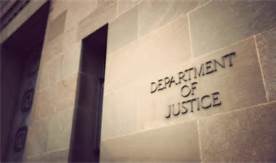Monitors and Remediation
 Just when you thought something was a “trend,” the Department of Justice adopts a new policy approach. This year has been a very active enforcement year – the strongest year of FCPA enforcement since 2010.
Just when you thought something was a “trend,” the Department of Justice adopts a new policy approach. This year has been a very active enforcement year – the strongest year of FCPA enforcement since 2010.
Starting with the Total settlement earlier this year, and continuing with the Diebold and Weatherford settlements, the Department of Justice has required companies to retain an independent monitor.
The Department of Justice has cited the inadequate remedial efforts undertaken by the companies as requiring companies to retain an independent monitor. Interestingly, the period for the monitors is not the usual three years but has been reduced to half of that, or 18 months.
The reemergence of the independent monitor comes after years of controversy surrounding the increased use of monitors, starting in the mid-2000s.
Former Attorney General Ashcroft was appointed a monitor for Zimmer and criticized for charging over $50 million in fees. In response to Congressional inquiries on the appointment of monitors, DOJ adopted a policy statement on the issue and reduced the number of monitors appointed in settlements.
Many of the large FCPA settlements included three-year monitors – Daimler, Siemens, BAE, Baker Hughes, and others. The facts in those cases definitely justified the requirement for monitors.
Nonetheless, in response to political winds, DOJ and the SEC were reluctant to impose monitors except in extraordinary cases. That trend appears to have been revised.
The recent settlements in 2013 reflect DOJ’s renewed interested in limited monitors which are required for a much shorter period of only 18 months rather than the earlier practice of 3 years. Part of this new policy reflects DOJ’s belief that 18 months is sufficient for a monitor to implement meaningful changes to the company’s ethics and compliance program. The other part of this new policy is an attempt to operate below the political radar screen.
More importantly, companies which are under investigation have to remember that remediation is the key. BizJet escaped a monitor because of its exception cooperation and remediation. Companies have to recognize that remediation is a cardinal principal and, if taken seriously, they may be able to escape an independent monitor.
 Remediation is not just mouthing the words of compliance but requires real and substantial actions, including terminating officers and employees who engaged in wrongdoing, adopting real and significant improvements to the existing compliance program and internal controls, along with structural improvements to the oversight and monitoring of the compliance program.
Remediation is not just mouthing the words of compliance but requires real and substantial actions, including terminating officers and employees who engaged in wrongdoing, adopting real and significant improvements to the existing compliance program and internal controls, along with structural improvements to the oversight and monitoring of the compliance program.
One of the clear messages from DOJ’s FCPA enforcement actions in 2013 is that independent monitors will be required for an 18 month period if the company fails to undertake meaningful remediation. Companies may lament DOJ’s policy on this issue but in reality companies which fail to act in response to an investigation have no one to blame but themselves.















